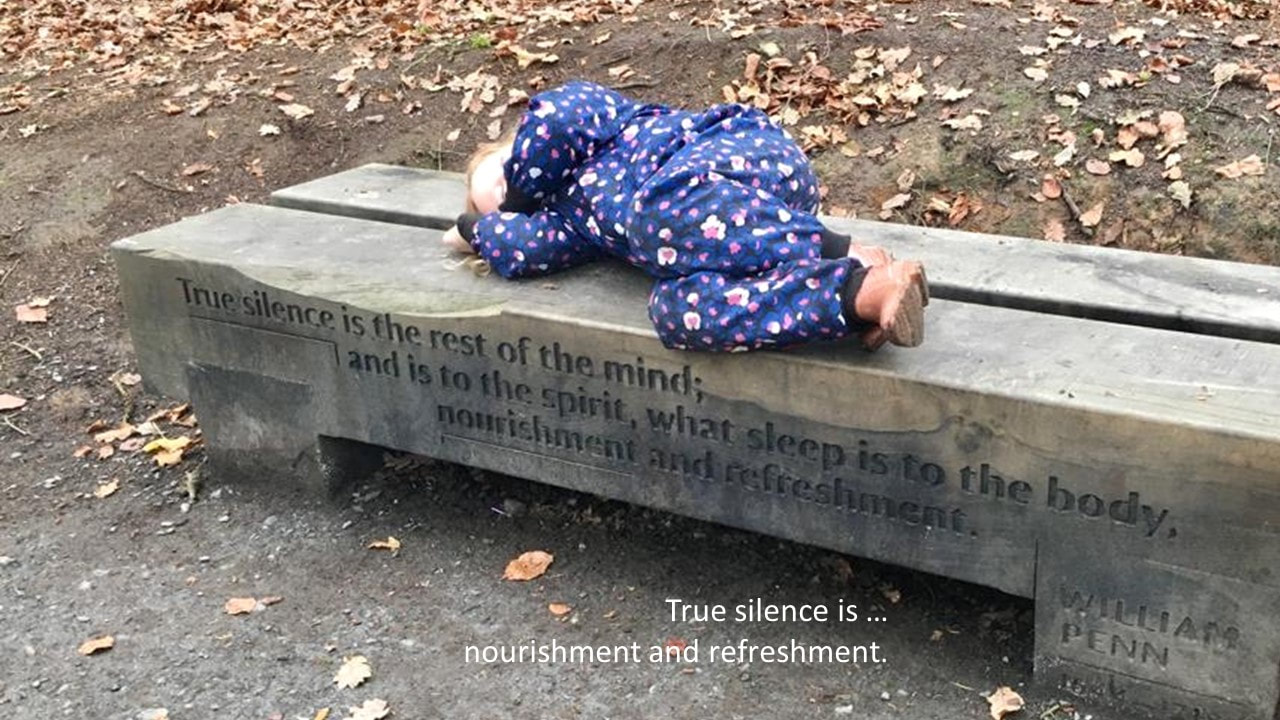Monday 14th February, 2022
William Penn, Advice to His Children Regarding their Civil and Religious Conduct (Franklin Roberts, 1881), 28.
Free text access at the Quaker Writings home page, http://www.qhpress.org/quakerpages/qwhp/advice2.htm
Free text access at the Quaker Writings home page, http://www.qhpress.org/quakerpages/qwhp/advice2.htm
Image: Hannah Wilson, photo of her daughter, Sophia, at Derrymore House, Newry, November 2021.
This quote is one of our oldest yet! It comes from the writings of the seventeenth-century Quaker, William Penn (1644-1718), published as Advice of William Penn to his Children: Relating to their Civil and Religious Conduct (Franklin Roberts, 1881), 28. However, reading what troubles some of his children had, it seems they didn't take much notice! You can read an on line, scanned copy of this 1881 edition, held by Union Theological Seminary, New York, here, or a text only version, which is easier to scroll through, on the Quaker Writings Home Page here. The quote is from Chapter 2, point 27. Penn was a man of deep religious convictions, who was imprisoned in the Tower of London several times for his beliefs, and from where he wrote No Cross, No Crown (1669), now considered a Classic text of Christian literature. For a scan of an 1853 copy and to read it's very long title in full, see here. William Penn was born in London and died in Berkshire but, having been frequently in trouble with the authorities for advocating religious freedom and challenges to the teachings of the Church, in 1677 left for America with around 200 other Quakers from the south of England. Eventually, in 1681 Penn was given a large area of land along the North American coast by Charles II as payment for a debt equivalent to c. £2.6 million today that the King owed to Penn's father, the Admiral and politician, Sir William Penn. Here, Penn founded a territory that he named 'Sylvania' - Latin for forests or woods - but which the King named 'Pennsylvania' in honour of Penn's father. Pennsylvania was governed by a charter of liberties drafted by Penn, who sought to create a political and religious utopia with free and fair trial by jury, freedom of religion, freedom from unjust imprisonment and free elections. Penn also established Philadelphia during the few years of his first sojourn in America, returning to England in 1684 and travelling back to America again in 1699. Penn's life was remarkable in many ways and, if you enjoy biographies, Andrew R. Murphy's William Penn: A Life (OUP, 2018) - see here - will make fascinating reading, not least in arguing for Penn's position as a critical proponent of religious freedom in England and the USA.
